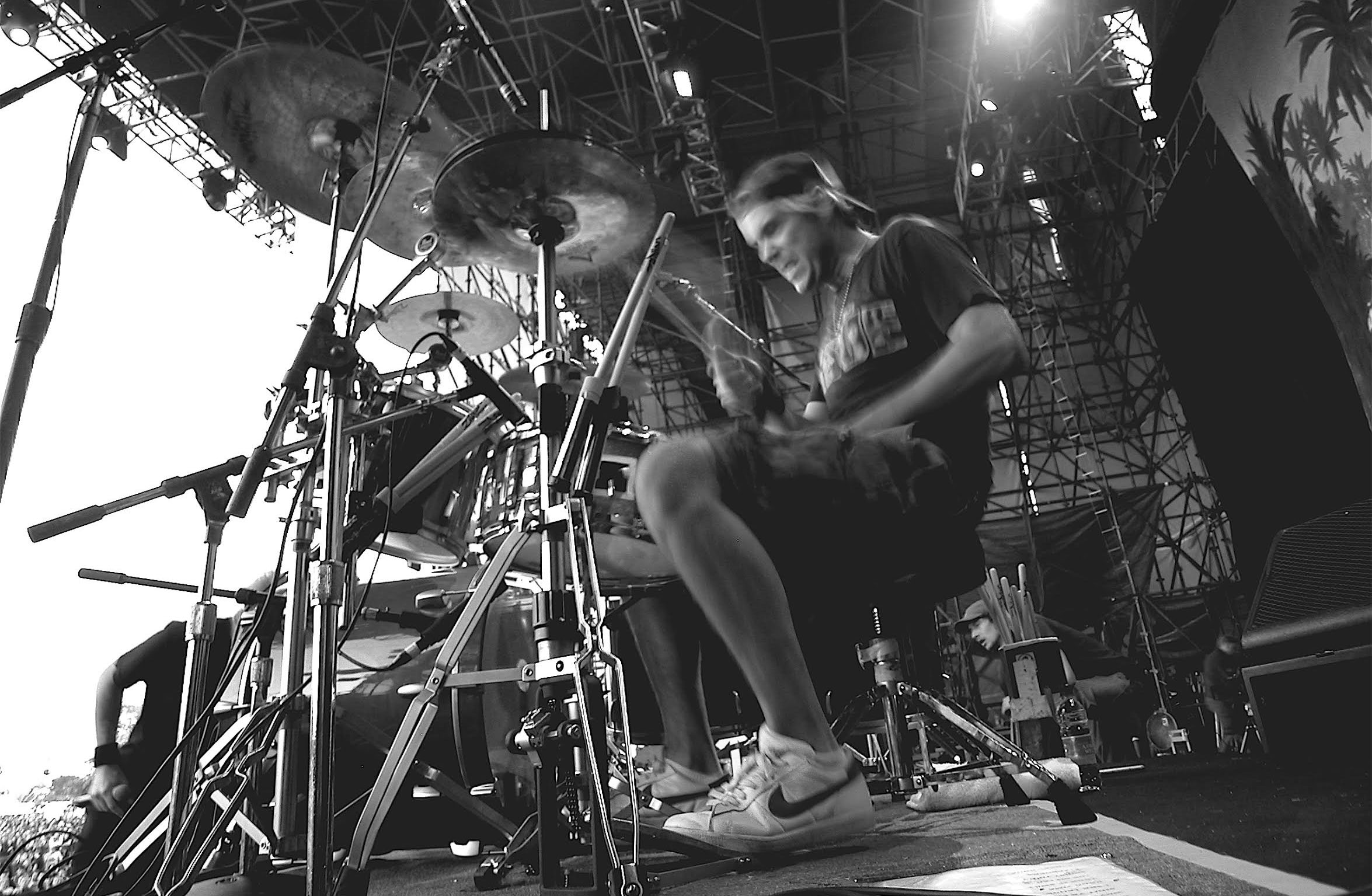Becoming a musician is full of highs and lows. There are times when you’re nailing it, and there are other, frustrating times when you feel like giving up altogether. To give you a bit of inspiration, Chordify has gone to the pros for tips on how to persevere, conquer – and rock!
Frederik ‘t Kindt – The Slow Show
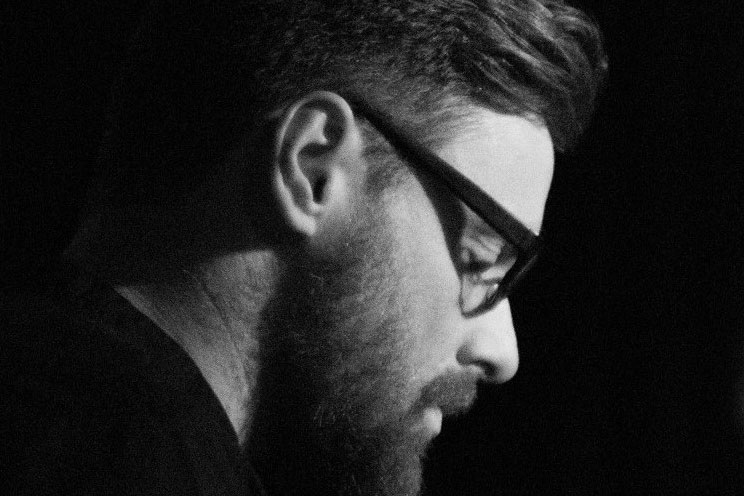
Both minimal and epic, both British and American sounding. If the band Elbow sacked their singer Guy Garvey and replaced him with Johnny Cash, you would get something like the Manchester based The Slow Show, with songs swelling from gentle piano-led Americana to roaring choruses and string sections.
The Slow Show released their debut album White Water in March 2015 and spent the rest of the year extensively touring Europe. The man behind the piano and responsible for that touch of America, is the classically trained Frederik ‘t Kindt, here to tell you all about his musical experiences.
Live Recording ‘Brother’ by IDK Sessions
Which song inspired you to pick up an instrument?
I can’t remember a specific song but it would have been classical music in general. My dad had a huge collection of classical music on vinyl and I used to sit in a little corner next to the record player with his very old headphones, which were way too big for me. I think I must have been five. I was always a dreamy quiet child, lost in my own thoughts and listening to this music probably helped me discover many emotions which were new to me at that age.
One morning my dad was watching a classical concert on TV and I remember telling Dad that I wanted to learn to play the violin. I studied the violin until my eighteenth, but slowly I gained more interest in the piano and now piano is my main instrument. In my late teens I was more interested in popular music and even learned the electric guitar and the violin didn’t fit in my plans anymore. The piano was more useful for writing and arranging which is now my main interest. But the violin and the classical music world taught me much about song structures and soundscapes/colors.
What was the first song that made your fingers ache or bleed?
Probably a Rachmaninov study.
What was your biggest obstacle?
I was two or three years into my musical education when I did a very bad exam. Exams where I grew up (Belgium) were always done in front of an audience and a 3 piece jury. That’s pretty tough for an eight year old. And I had a total mental block. I developed stage fright and was dreading public performances.
I started playing music just for myself and gave up on the idea of being a professional musician. I wish now that I could have found a way of not doing these exams, I think I would have carried on longer and studied harder.It was only in my adult years that I started to enjoy playing in public again, but it took a long time.
Try playing along with The Slow Shows hit song ‘Bloodline’? We got you the chords:
What’s your favorite chord and why?
I like C Major, for me it usually sounds euphoric and optimistic. But I tend to be drawn to minor chords more. Strangely enough, minor chords can make me feel good.
When did you start to write your own songs?
I took theory very seriously and in hindsight probably too much so. I used to spend more time analyzing music than creating. But you have to know the rules to break them, I just wished I had rebelled more against the rules sooner. Again it’s a result of my classical education where you are told to abide by the rules.
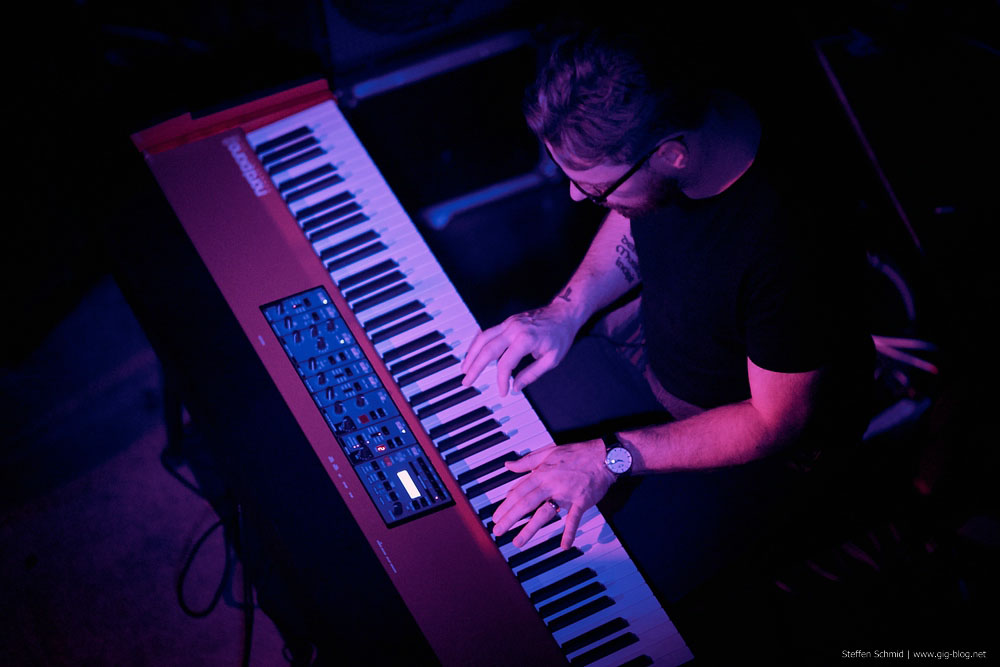 (by Steffen Schmid – Source: gig-blog.net)
(by Steffen Schmid – Source: gig-blog.net)
In the first ever rehearsals with the Slow Show, I tried to work on the music like in a classical orchestra, where every note gets scrutinized and practiced until it’s perfect. The other members were way more relaxed. Now I think we’re somewhere in the middle, I think the other guys learned to pay more attention to detail and I learned to make sure the details and theoretical rules don’t suffocate the creativity.
When it comes to writing, I used to leave it to the other guys to come up with the initial ideas and then work on the arrangement. I like to work on the basis of the song and the general soundscape; I guess mostly production. In terms of writing, I used to contribute by writing middle eights or changing the odd chord in the verses or so. But a few years ago, I felt more confident and now write whole pieces. But I don’t write lyrics, only music.
What was your first time playing with others like?
It took me a little while to learn how to compromise on certain ideas. But I quickly started to appreciate and learn from everyone’s talent and skills. I love the interaction and the chemistry on stage when it’s sounding good. There are these knowing looks between us all, I guess that’s something only musicians understand.
I wouldn’t usually borrow riffs or chord sequences, but I do take a lot of inspiration from other artists in terms of sound in general and sometimes also song structures.
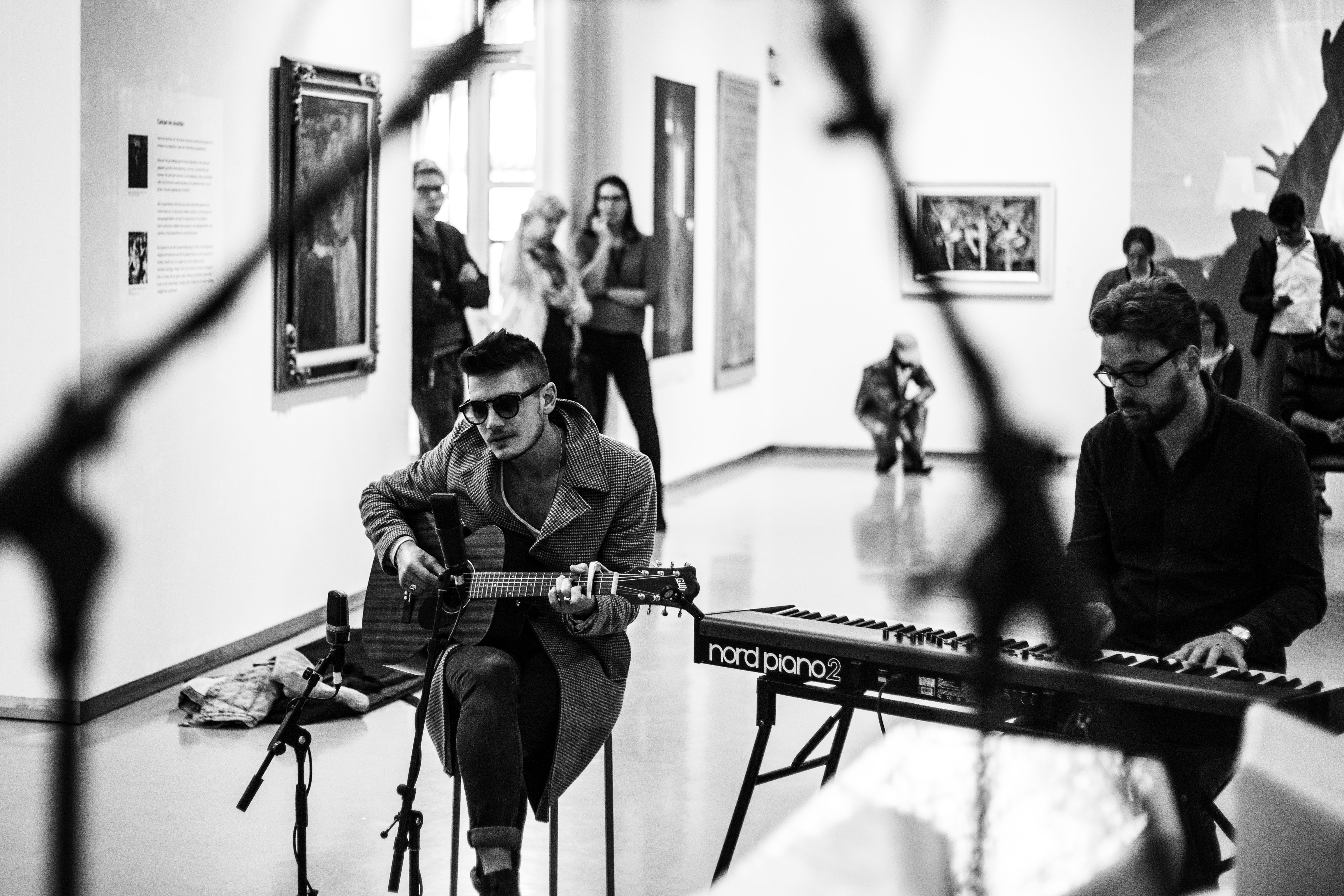 Video shoot Stedelijk Museum, Zwolle (by Tineke Klamer)
Video shoot Stedelijk Museum, Zwolle (by Tineke Klamer)
Do you still play songs written by other artists?
No. Lots of classical pieces are still beyond me and that’s pretty frustrating.
Any advice for aspiring rock stars to inspire them to keep on playing?
Try not to give up on musical ideas too quickly. It’s easy to get excited about an idea or riff but discard it the next day when you are in a different mood. I started to categorize the little pieces I wrote that I never finished. Some day it may come handy, or someone will hear it and give it a different dimension.
And don’t be a slave to the rules. Use them to get you going but then just follow your instinct.
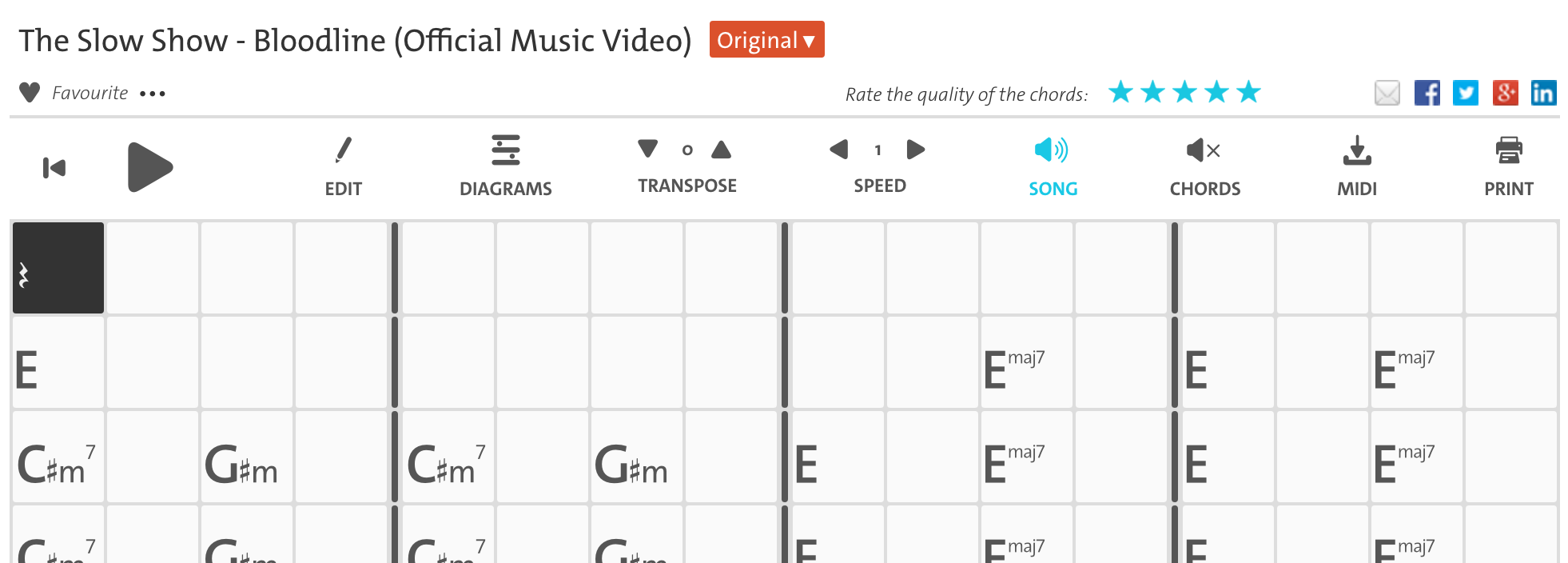
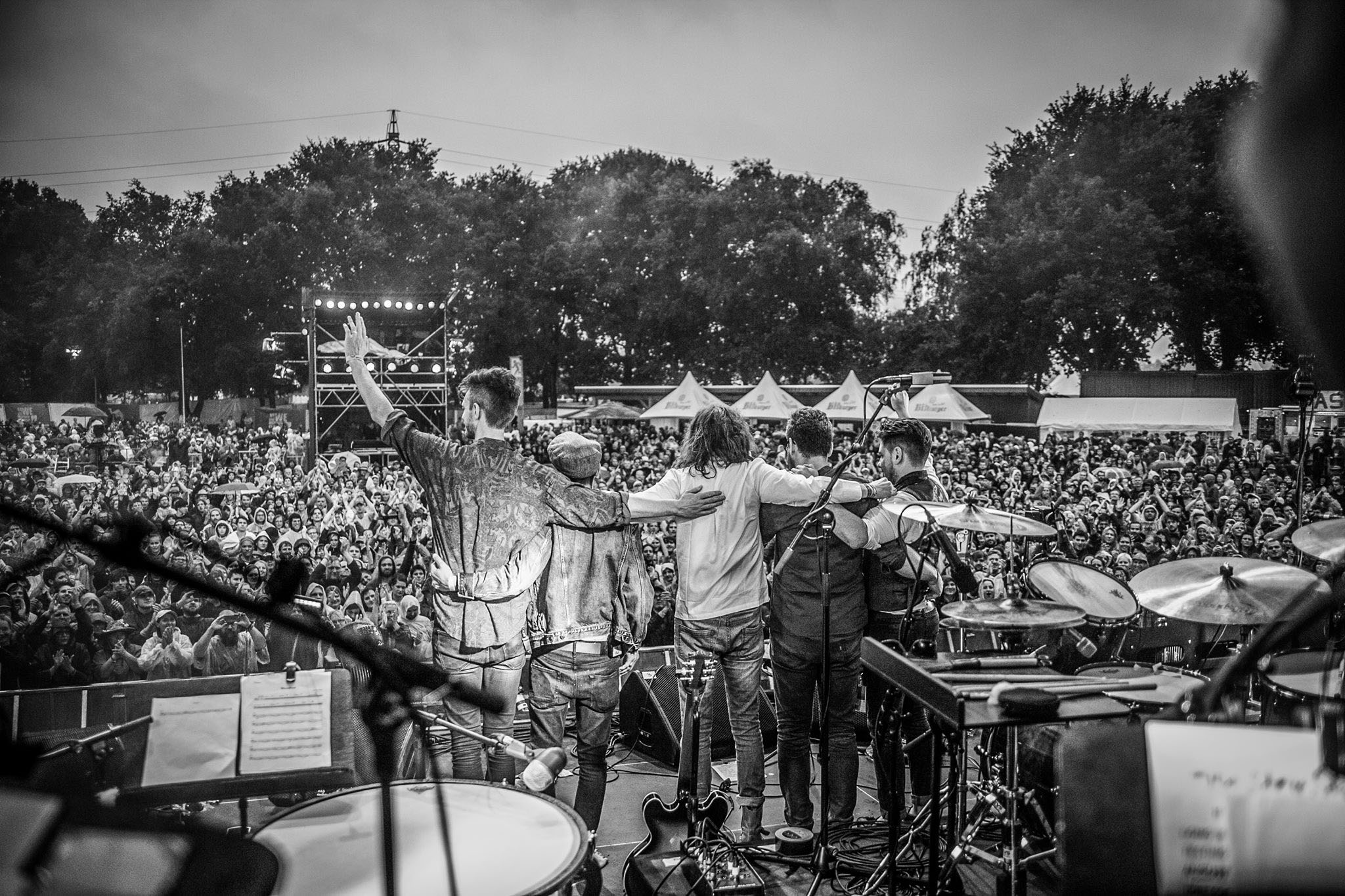 The Slow Show – Haldern Pop 2015 (photographer unknown)
The Slow Show – Haldern Pop 2015 (photographer unknown)